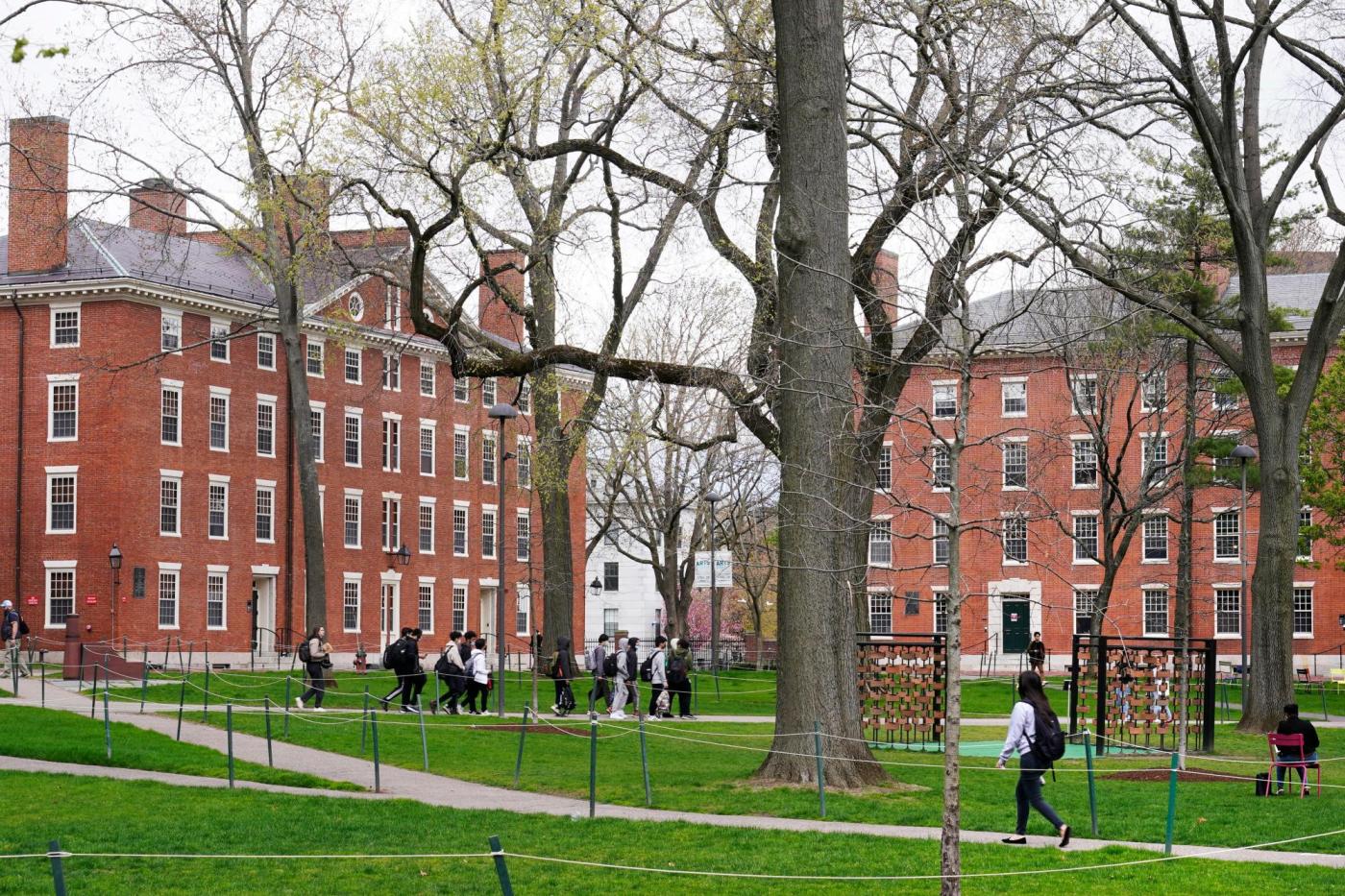
David French: This is the actual danger posed by DEI
There are few national conversations more frustrating than the fight over DEI. Short for “diversity, equity, and inclusion,” the term — like the related progressive concepts of wokeness and critical race theory — used to have an agreed-upon meaning but has now been essentially redefined on the populist right. In that world, DEI has become yet another catchall boogeyman, a stand-in not just for actual policies or practices designed to increase diversity, but also a scapegoat for unrelated crises.
For example, after a door plug blew off a Boeing 737 Max 9 jet this month, X’s Elon Musk, among others, launched a series of tirades against DEI. The idea, if it can be called that, was that efforts to diversify airline workforces had contributed to the accident. The problem was that there was zero evidence that these efforts had anything to do with it. In fact, the airline industry is much safer than it was when it was a virtually all-white enterprise decades ago.
So, yes, the immense backlash from parts of the right against almost any diversity initiative is a sign of the extent to which millions of white Americans are content with their vastly disproportionate share of national wealth and power.
Constitutional values
But that’s not the entire story when it comes to controversy over DEI. Outside the reactionary right, there is a cohort of Americans, on both right and left, who want to eradicate illegal discrimination and remedy the effects of centuries of American injustice yet also have grave concerns about the way in which some DEI efforts are undermining American constitutional values, especially on college campuses.
For instance, when a Harvard scholar such as Steven Pinker speaks of “disempowering DEI” as a necessary reform in American higher education, he’s not opposing diversity itself. Pinker is liberal, donates substantially to the Democratic Party and “loathes” Donald Trump. The objections he raises are shared by a substantial number of Americans across the political spectrum.
To put it simply, the problem with DEI isn’t with diversity, equity or inclusion — all vital values.
The danger posed by DEI resides primarily not in these virtuous ends but in the unconstitutional means chosen to advance them.
Three examples
I’ll share with you three pervasive examples, each of them drawn both from contemporary controversies and from decades of cultural conflict and constitutional litigation in America’s colleges and universities. In the name of DEI, all too many institutions have violated their constitutional commitments to free speech, due process and equal protection of the law.
First, it is a moral necessity for colleges to be concerned about hateful discourse, including hateful language directed at members of historically marginalized groups. Moreover, colleges that receive federal funds have a legal obligation to protect students from harassment on the basis of race, sex, sexual orientation and other protected categories.
Yet that is no justification for hundreds of universities to pass and maintain draconian speech codes on campus, creating a system of unconstitutional censorship that has been struck down again and again and again in federal court. Nor is it a justification for discriminating against faculty members for their political views or for compelling them to speak in support of DEI.
Second, there is a moral imperative to respond to sexual misconduct on campus. While the precise numbers of college sexual assaults are disputed, we can all agree that the abuse some women endure at school is a moral disgrace. Moreover, every school that receives federal funds has a legal obligation to protect students from sexual harassment and sexual violence. And there’s no question that survivors of sexual harassment and sexual assault have long faced a struggle to be heard, to be taken seriously and to receive justice.
Yet that is no justification for replacing one tilted playing field with another. Compelled in part by constitutionally problematic guidance from the Obama administration, hundreds of universities adopted sexual misconduct policies that strip the most basic due process protections from accused students. The result has been systematic injustice. As Brooklyn College professor KC Johnson and civil liberties attorney Samantha Harris have chronicled, between 2011 and 2019 more than 500 accused students filed lawsuits “against their college or university.” At the time of their article, colleges had lost more than 90 of those cases and settled more than 70 others.
The due process problem was so profound that in 2019 a state appellate court in California — hardly a bastion of right-wing jurisprudence — ruled that “fundamental fairness” entitles an accused student to cross-examine witnesses in front of a neutral adjudicator. The ruling may sound like constitutional common sense. But California procedures had been so flawed that Cal State alone temporarily halted 75 cases while it updated its policies and practices to include those minimal safeguards.
Third, it is urgently necessary to address racial disparities in campus admissions and faculty hiring — but, again, not at the expense of the Constitution. One can agree or disagree with the full extent of the Supreme Court’s holding in Students for Fair Admissions v. Harvard, which halted the use of race as a factor in most college admissions. But it is difficult to ignore the overwhelming evidence that Harvard attempted to achieve greater diversity in part by systematically downranking Asian applicants on subjective grounds, judging them deficient in traits such as “positive personality,” likability, courage, kindness and being “widely respected.” That’s not inclusion; it’s discrimination.
A consistent defense of the Constitution
Our nation has inflicted horrific injustices on vulnerable communities. And while the precise nature of the injustice has varied — whether it was slavery, Jim Crow, internment or the brutal conquest of Native American lands — there was always a consistent theme: the comprehensive denial of constitutional rights.
But one does not correct the consequences of those terrible constitutional violations by inflicting a new set of violations on different American communities in a different American era. A consistent defense of the Constitution is good for us all, including for advocates of DEI. The same Constitution that blocks DEI’s excesses protects its supporters from the vengeful right-wing politicians and activists who are now attempting to impose speech codes of their own.
There is a better way to achieve greater diversity, equity, inclusion and related goals. Universities can welcome students from all walks of life without unlawfully censoring speech. They can respond to campus sexual violence without violating students’ rights to due process. They can diversify the student body without discriminating on the basis of race. Virtuous goals should not be accomplished by illiberal means.
David French joined The New York Times as an Opinion columnist in January 2023. Before that, he was a senior editor at The Dispatch, which he helped start, and a contributing writer at The Atlantic. He spent most of his career as a practicing lawyer, working in commercial and constitutional litigation. In his late 30s, he joined the United States Army Reserve as a judge advocate general. David deployed to Iraq in 2007 and served in Diyala Province, where he was awarded a Bronze Star. He is a former president of the Foundation for Individual Rights and Expression. His most recent book is “Divided We Fall: America’s Secession Threat and How to Restore Our Nation.” He lives in Franklin, Tenn.
Related Articles
Parmy Olson: Facebook’s tolerance for audio deepfakes is absurd
Michael Rogers: An FAQ from the future — how we struggled and defeated deepfakes
Tang, Choi: To combat the fentanyl crisis, target the supply chain
Other voices: If Trump’s immune, so’s Biden, no?
Amir Sommer: I am half Israeli and half Palestinian. This war feels as if it’s killing me twice


